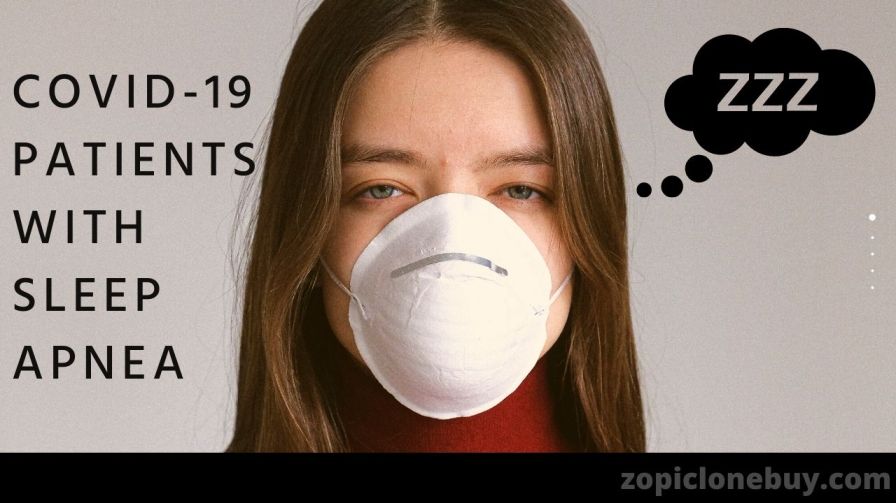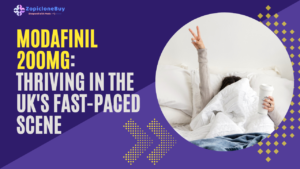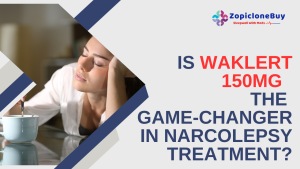Covid-19 is primarily characterized by respiratory distress that is severely dangerous for people with old age, diabetes, poor lung function, and cardiovascular disease. On the other hand, OSA is a sleep disorder characterized by repetitive sleep disruption due to shortness of breath. It can also lead to severe oxygen desaturation and increased systolic and diastolic blood pressure. Individuals with obesity, old age, upper-airway structure anomalies, and male gender are the common risk factors for OSA. More than 8 per cent populations are affected by OSA, and it can go up to 20% for people above 60 years.
Is covid-19 patients with Sleep Apnea are at More Risk?
Studies have suggested covid-19 patients with Obstructive Sleep Apnea (OSA) are five times more likely to be hospitalized regardless of their age, body mass index, sex, and other pre-existing diseases like hypertension, diabetes, asthma, chronic obstructive pulmonary disease (COPD), and Chronic Heart Disease (CHD).
The study was conducted by a team of researchers from the University of Helsinki, Helsinki University Hospital, Broad Institute of MIT and Harvard, and Massachusetts General Hospital. The purpose of the study was to understand if OSA patients are more likely to contract covid-19 and whether covid-19 patients with OSA can develop a severe form of the disease leading to hospitalization.
The study
The team gathers details of 305 patients with covid-19 from the FinnGen Study. Out of them, 26 patients were also had OSA. All infected patients who underwent hospitalization were considered as severe covid-19 patients. Among those severe patients, 16 of them had OSA. Meaning out of 26 covid patients with OSA, 16 of those individuals were affected severely. The team analyzed all the other risk factors for OSA and severe covid-19 from the data.
The Result
The study shows that Covid-19 patients with OSA are five times more likely to develop complications leading to hospitalization. OSA is an independent factor that can elevate the risk of complications in covid patients regardless of their age, sex, pre-existing disease, and other possible risk factors. The findings suggest that while assessing or confirming covid-19 patients, doctors must consider OSA as a comorbidity factor.
However, the study also confirms that OSA doesn’t make an individual more vulnerable in contracting Covid-19. The risk of contracting covid for OSA patients remains the same as non-OSA individuals.
Possible Reasons why covid-19 Patients with OSA are more at Risk
Coronavirus enters the host cell by binding with the angiotensin-converting enzyme-2 receptor. The lung damage caused by the virus leads to a cytopathic effect that triggers inflammation in the body. The introduction of cytokines like C – reactive protein, leptin, ferritin, interleukins, etc., remains some of the primary regulators of the inflammatory response of the virus. Surprisingly, obstructive sleep apnea also shows a similar inflammatory response.
We can hypothesize those patients with OSA, when exposed to covid-19, become more vulnerable as both the ailment affects the respiratory system. Therefore, they must be given special assistance followed by a new therapeutic approach for preventing and controlling their condition.
Studies have shown a strong relationship between OSA’s hypertension and angiotensin-converting enzyme receptor II. This study can help OSA patients to alleviate their risk of infection by using ACE-2 inhibitors.
Does Zopiclone help in sleep Apnea?
Studies show that a standard dose of hypnotics like Zopiclone can reduce the apnea-hypopnea index in OSA patients. People taking Zopiclone 7.5 mg for 1-month witnesses a modest reduction of AHI vs. baseline without feeling any change in sleep parameters or next-day sleepiness.
In the study, OSA patients were given 7.5 mg of Zopiclone for one month. The results were fascinating as Zopiclone didn’t worsen patients’ AHI, hypoxemia, arousal threshold, morning alertness, or daytime sleepiness. These findings contributed to the single-night hypnotic studies while discarding the earlier claims that hypnotics like Zopiclone worsen sleep apnea.
The study also analyzes the effects of high-dosage Zopiclone (15 mg) on AHI, arousal threshold, next-day alertness, and genioglossus muscle responsiveness in people with OSA. People with OSA taking 15 mg Zopiclone show low to moderate arousal threshold without any significant display of overnight hypoxemia. The study concludes that high-dose Zopiclone may offer an increment in arousal threshold and lower AHI, but it may increase hypoxemia and next-day impairment.
Can covid-19 patients take Zopiclone?
Studies suggest that patients with covid-19 may get relief from anxiety and sleep deficiency by taking Zopiclone. A team of twenty researchers conducted the zopiclone effect on Covid-19 patients research, including JABSOM’s Youping Deng, a University of Hawaiʻi at Mānoa professor of quantitative health sciences, and Ling Hu Tianyou Hospital. The team reviewed charts of 323 covid-19 patients admitted between 8th January 2020 and 20th February 2020.
82 patients out of 323 were prescribed 1 mg Zopiclone daily during their hospitalization. Of those 82, 77 patients had better clinical results. Compared to the non-hypnotics group, patients on hypnotics like Zopiclone shows better clinical outcomes. The improvements were much better for patients with severe disease groups. The team noticed that patients showed more substantial anxiety and sleep deficiency as the disease progressed. The findings suggest that better quality sleep and reduction in stress may enhance the immunity of the patients receiving hypnotics.
Besides treating insomnia, Zopiclone also helps promote autophagy activation that allows the body to protect against infections. However, since only 25 per cent of patients received hypnotics, investigators cannot accurately conclude that self-healing may have occurred in some patients without any medical intervention.
What does Zopiclone do to your body?
Zopiclone belongs to the class of non-benzodiazepine hypnotic that aids in sleep by increasing the neurotransmitter (GABA) in the brain. Our body release chemicals called neurotransmitters that orders our never cells to sleep. GABA is a neurotransmitter that acts as a calming agent for your nerve cells, inducing sleepiness, relaxing muscles and reducing anxiety. Zopiclone helps decrease the time you take to fall asleep and the number of times you wake while sleeping.
Who cannot take Zopiclone?
Zopiclone is only recommended for adults. It should not be taken by:
- Individuals below 18 years of age
- People suffering from breathing issues
- People with myasthenia gravis that involves abnormal muscle weakness
- People with severe liver ailments
- People in their pregnancy, breastfeeding or planning to get pregnant
Note: There is a debate whether people suffering from sleep apnea syndrome should take Zopiclone or not? While studies say 7.5 mg is safe, you must consult your doctor and pharmacist before buying Zopiclone.
Some people may take a lower dose of Zopiclone with extra monitoring. Make sure to inform your doctor if you have:
- Kidney or liver problems
- Psychiatric illness such as personality disorder
- Long-term breathing problems
- History of drug abuse or alcoholism
How to Take Zopiclone?
It would be best if you took Zopiclone before going to bed, ensuring you can complete at least eight hours of sleep.
Taking Zopiclone is not advised with alcohol or other sleeping tablets, medications or illegal drugs. This can push you into a deep sleep that you have difficulty waking up or may not breathe properly.
Generally, doctors prescribe a standard dose of 7.5 mg, but you may ask for a lower dose if it works.
People with old age, weakness, or kidney/liver problems can take a 3.75 mg tablet at bedtime.
You can take medicine with or without food.
Make sure to swallow the whole medicine with water. Don’t break, crush, chew or suck on it.
Do not take a second dose even if you wake up in the middle of your sleep.
You can order this sleeping medicine from online pharmacy Zopiclonebuy.
Zopiclone is prescribed only for a shorter period, such as a few days or weeks. Don’t take the medication for more than four weeks because your body will develop tolerance, and you will start depending on the medicine forever.
It would be safer to reduce your dose gradually over a few days or weeks to avoid the drug’s withdrawal effects such as headaches, anxiety, restlessness or irritations. Although, these symptoms are rare if you discontinue Zopiclone before four weeks. Under no circumstances you should take a higher dose of Zopiclone or extend the course unless prescribed by your doctor.
What are the Possible side effects of Zopiclone?
Side-effects of Zopiclone include drowsiness, dizziness, muscle weakness, lack of concentration or diminished alertness. Drinking alcohol with Zopiclone may aggravate these effects, and in some cases, these effects may continue to the next day. Therefore, individuals should not drive, operate machinery, or work at heights for at least 12 hours after taking Zopiclone.
Common side effects of Zopiclone affecting 1-10 per cent of people
- Dry mouth
- Feeling sleep the next day
- A bitter or metallic taste
Uncommon side effects of Zopiclone affecting 0.01 to 0.001 per cent of people
- Vomiting
- Headache
- Dizziness
- Agitation
- Nightmares
- Rare
Rare side effects affecting 0.001 to 0.0001 per cent of people
- Confusion
- Memory loss
- Hallucinations
- Difficulty in breathing or swallowing
- Rash, hives or itching
- Hostile behaviour
Remember that the manufacturer’s side-effects mentioned here or declared do not necessarily mean everyone will experience them. Some medicines affect people differently. Since you need to take Zopiclone right before bed, you are less likely to experience these side effects. You are more likely to experience them if you do not sleep after taking them.
Reference
COVID-19 exposure and obstructive sleep apnea: a therapeutic approach (nih.gov)
Sleep apnea increases risk of severe COVID 19 (news-medical.net)





